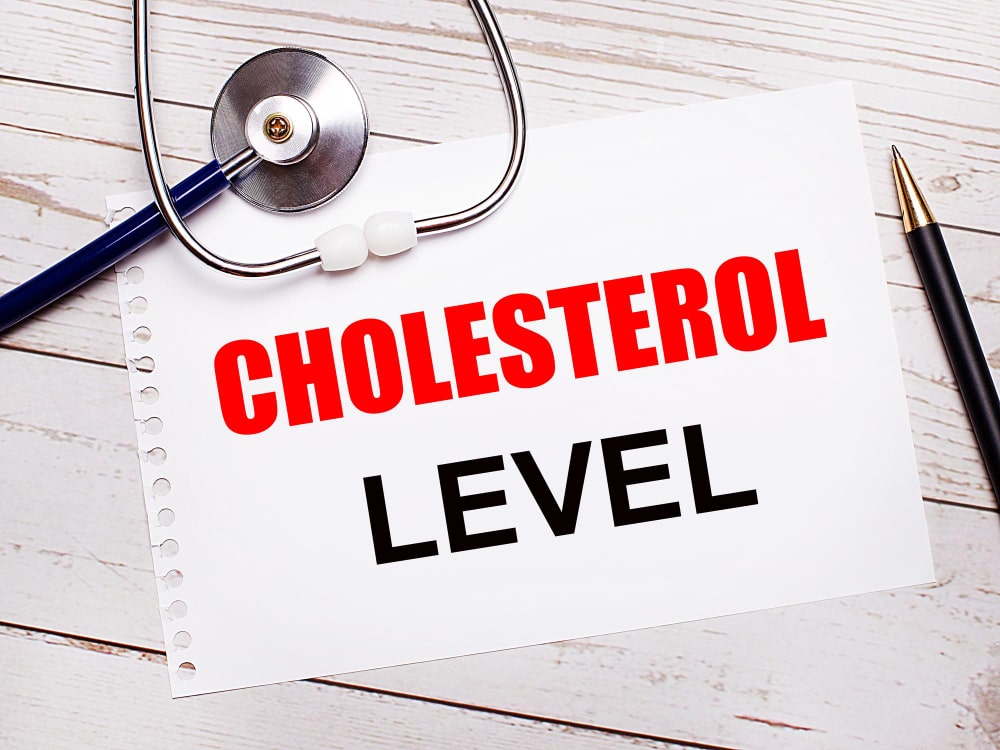Do you find yourself constantly worrying about your cholesterol levels? Are you looking for effective ways to lower your cholesterol naturally? Look no further! In this comprehensive guide, we will explore the ins and outs of cholesterol management, providing you with valuable insights and practical tips to achieve optimal heart health. With a focus on natural approaches and evidence-based strategies, you’ll be equipped with the knowledge and tools necessary to make positive changes in your lifestyle. So, let’s dive in and discover how to lower cholesterol effectively!
Understanding Cholesterol: The Basics
Before we delve into the strategies for lowering cholesterol, it’s essential to understand what cholesterol is and its role in our bodies. Cholesterol is a waxy, fat-like substance that is produced by the liver and also obtained through certain foods. It plays a crucial role in building cell membranes, producing hormones, and aiding in the digestion of fat. However, when cholesterol levels exceed the normal range, it can lead to health problems, particularly cardiovascular diseases.
Cholesterol is classified into two types: low-density lipoprotein (LDL) cholesterol, often referred to as “bad” cholesterol, and high-density lipoprotein (HDL) cholesterol, known as “good” cholesterol. The goal of cholesterol management is to reduce LDL cholesterol levels while maintaining or increasing HDL cholesterol levels.
Factors Affecting Cholesterol Levels
Various factors can influence cholesterol levels, including:
| Factors | Description |
|---|---|
| Dietary Choices | The foods we consume, especially those high in saturated and trans fats, can significantly impact cholesterol levels. |
| Physical Activity | A sedentary lifestyle can contribute to higher cholesterol levels, while regular exercise can help lower them. |
| Genetics | Some individuals are genetically predisposed to have higher cholesterol levels. |
| Weight | Being overweight or obese can increase LDL cholesterol and triglyceride levels. |
| Smoking | Smoking not only damages blood vessels but also lowers HDL cholesterol levels. |
By addressing these factors through lifestyle modifications, you can take control of your cholesterol levels and reduce the risk of heart disease.
How to Lower Cholesterol Naturally
1. Adopt a Heart-Healthy Diet
Eating a well-balanced diet rich in heart-healthy foods is the cornerstone of cholesterol management. Consider incorporating the following into your daily meals:
- Omega-3 fatty acids: Found in fatty fish like salmon and walnuts, these healthy fats can lower triglyceride levels.
- Fiber-rich foods: Oats, barley, legumes, and fruits can help lower LDL cholesterol levels.
- Plant sterols and stanols: These compounds, present in certain fortified foods, can reduce the absorption of cholesterol in the gut.
Remember to limit your intake of saturated and trans fats, found in processed foods, fried items, and fatty meats, as they can raise LDL cholesterol levels.
2. Get Moving: Exercise Regularly
Regular physical activity not only helps in weight management but also boosts HDL cholesterol levels. Aim for at least 150 minutes of moderate-intensity aerobic exercise, such as brisk walking or cycling, every week. Additionally, strength training exercises a few times a week can enhance overall cardiovascular fitness.
3. Shed Excess Weight
Excess weight, especially around the abdominal area, can contribute to higher cholesterol levels. Losing even a modest amount of weight can have a significant impact on your cholesterol profile. Combine a healthy diet with regular exercise to achieve sustainable weight loss and improve your heart health.
4. Quit Smoking
Smoking not only damages blood vessels but also lowers HDL cholesterol levels, increasing the risk of heart disease. Seek support from healthcare professionals, join smoking cessation programs, or try nicotine replacement therapies to kick the habit for good.
5. Limit Alcohol Consumption
While moderate alcohol consumption may have some heart benefits, excessive drinking can raise cholesterol levels and contribute to weight gain. If you choose to drink alcohol, do so in moderation—up to one drink per day for women and two drinks per day for men.
6. Manage Stress
Chronic stress can contribute to unhealthy habits and increase cholesterol levels. Explore stress management techniques such as yoga, meditation, deep breathing exercises, or engaging in hobbies to keep stress at bay.
Frequently Asked Questions (FAQs)
FAQ 1: Can certain medications help lower cholesterol?
Yes, in some cases, healthcare professionals may prescribe medications known as statins to lower cholesterol levels. However, lifestyle modifications should always be the first line of defense, and medication should be used in conjunction with healthy habits.
FAQ 2: Are all cholesterol-lowering supplements effective?
No, not all supplements marketed for lowering cholesterol are backed by solid scientific evidence. Some supplements, like red yeast rice, may contain natural statins, but their efficacy and safety can vary. Always consult with your doctor before taking any cholesterol-lowering supplements.
FAQ 3: Can I eat eggs if I have high cholesterol?
Contrary to popular belief, research suggests that moderate egg consumption does not significantly impact cholesterol levels in most individuals. However, if you have high cholesterol or other risk factors, it’s wise to limit your intake and focus on a well-rounded, heart-healthy diet.
FAQ 4: Is it possible to lower cholesterol without medication?
Absolutely! In fact, lifestyle modifications are often the most effective way to lower cholesterol levels. By making smart dietary choices, engaging in regular exercise, and implementing other healthy habits, you can improve your cholesterol profile and reduce the need for medication.
FAQ 5: How long does it take to see results from lifestyle changes?
Results may vary depending on various factors such as the severity of your cholesterol levels, your adherence to healthy habits, and genetic factors. However, with consistent effort, many individuals notice positive changes within a few weeks to a few months.
FAQ 6: Can children have high cholesterol?
Yes, high cholesterol can affect people of all ages, including children. It can be caused
by genetic factors or unhealthy lifestyle habits. If you’re concerned about your child’s cholesterol levels, consult with their pediatrician to discuss appropriate interventions.
Conclusion
Lowering cholesterol levels is vital for maintaining a healthy heart and reducing the risk of cardiovascular diseases. By adopting a heart-healthy diet, engaging in regular physical activity, maintaining a healthy weight, and making positive lifestyle changes, you can effectively lower your cholesterol levels and improve your overall well-being.
Remember, cholesterol management is a journey that requires commitment and persistence. Small, gradual changes can have a significant impact on your health in the long run. Take charge of your cholesterol levels today and enjoy the benefits of a healthy heart for years to come!
Do you have any additional questions or tips on how to lower cholesterol? Share your thoughts and insights in the comments below!

